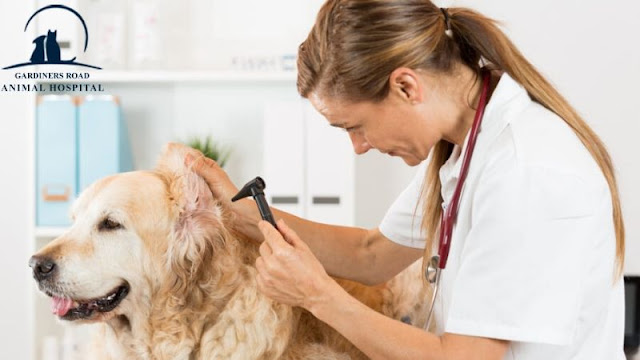An Overview of Parasite Control Services at GRAH
Roundworms, Hookworms, Whipworms, oh my! A recent study found that 33.9% of dogs and 31.8% of cats that came from shelters were positive for an intestinal parasite. Pets that are left untreated for parasites pose a risk to other animals and humans. At Gardiners Road Animal Hospital, we recommend routine deworming and fecal testing for all pets. We saw many dogs and cats come up positive for roundworms, hookworms, whipworms, tapeworms, and giardia with fecal testing.
At Grah Kingston, we are providing quality Cat & Dog Parasite Control Service. We are known as one of the best Dog & Cat Parasite Control Vet Clinics in Kingston.
Roundworms
Roundworms are the most common intestinal parasite seen in cats and dogs. They
are long and thin and can resemble spaghetti. Cats and dogs can be infected
with roundworms by ingesting eggs that reside in soil, feces, and mice, and
other small mammals. Puppies and kittens can also contract roundworms from
their mother. Roundworms are a zoonotic parasite, which means they can be
passed onto humans. Children are vulnerable to infection as they are more
likely to put dirt and other contaminated objects into their mouths.
Hookworms
Hookworm eggs are passed in feces and hatch into larvae that live in the soil.
Dogs and cats can be infected by ingestion through grooming or skin or feet
contact. Puppies and kittens can be infected by ingesting their mother’s infected
milk. Humans can be infected with hookworms through skin contact. It is often
due to walking barefoot on a beach. Hookworms attach themselves to the
intestinal lining and feed on your pet’s blood. It can lead to anemia and can
be life-threatening in young pets.
Whipworms
Whipworm infection is uncommon in cats in North America but can be found in up
to 10% of dogs in Ontario. Whipworm eggs are hardy, are resistant to extreme
temperatures, and can remain in the soil for several years. Dogs become infected
by ingesting eggs from their contaminated environment.
Tapeworms
Tapeworms are long flatworms, made up of many segments. Segments look like
grains of rice and can be found on your pet’s fur around its hind end. Cats and
dogs can be infected with tapeworm by ingesting infected rodents or ingesting
fleas during grooming. An emerging tapeworm, Echinococcus, is transmissible to
humans and can cause major health issues to dogs and humans. Fortunately, it is
still an uncommon parasite in Canada but is becoming more recognized.
Giardia
Dogs and cats can be infected with giardia by contacting contaminating infected
feces from other pets that are infected with this single-cell parasite.
Transmission from dogs and cats to humans is rare.
What are some
signs that my pet has intestinal worms?
Intestinal worms can cause gastrointestinal upset, such as diarrhea (with or
without blood), vomiting, and inappetence. Lethargy and weight loss can occur
with heavier infections. If a puppy or kitten has an abundance of intestinal
worms, they can often have a pot-bellied appearance. Owners may also see full
worms or segments of intestinal worms around their pet’s hind-end or in their
fecal matter. Many animals with parasite infections show no symptoms at all.
How do we treat
and prevent intestinal worms?
For dogs, there is deworming medication included in most heartworm prevention
products. It means that they will be dewormed every month when receiving their
heartworm prevention medication. There are topical and oral deworming
medications for your cat. Healthy adult pets should have a fecal test done.
Puppies, kittens, and new pets should be tested shortly after adoption. To
reduce the possibility of transmission of parasites, it is recommended to pick
up your dog’s feces in your yard daily. Thoroughly wash your hands after
dealing with your pet’s urine or feces.
Pet owners are welcome to visit our Animal Hospital in Kingston. Our veterinarians can carry out specific testing to diagnose the parasites effecting the health of your pet.



